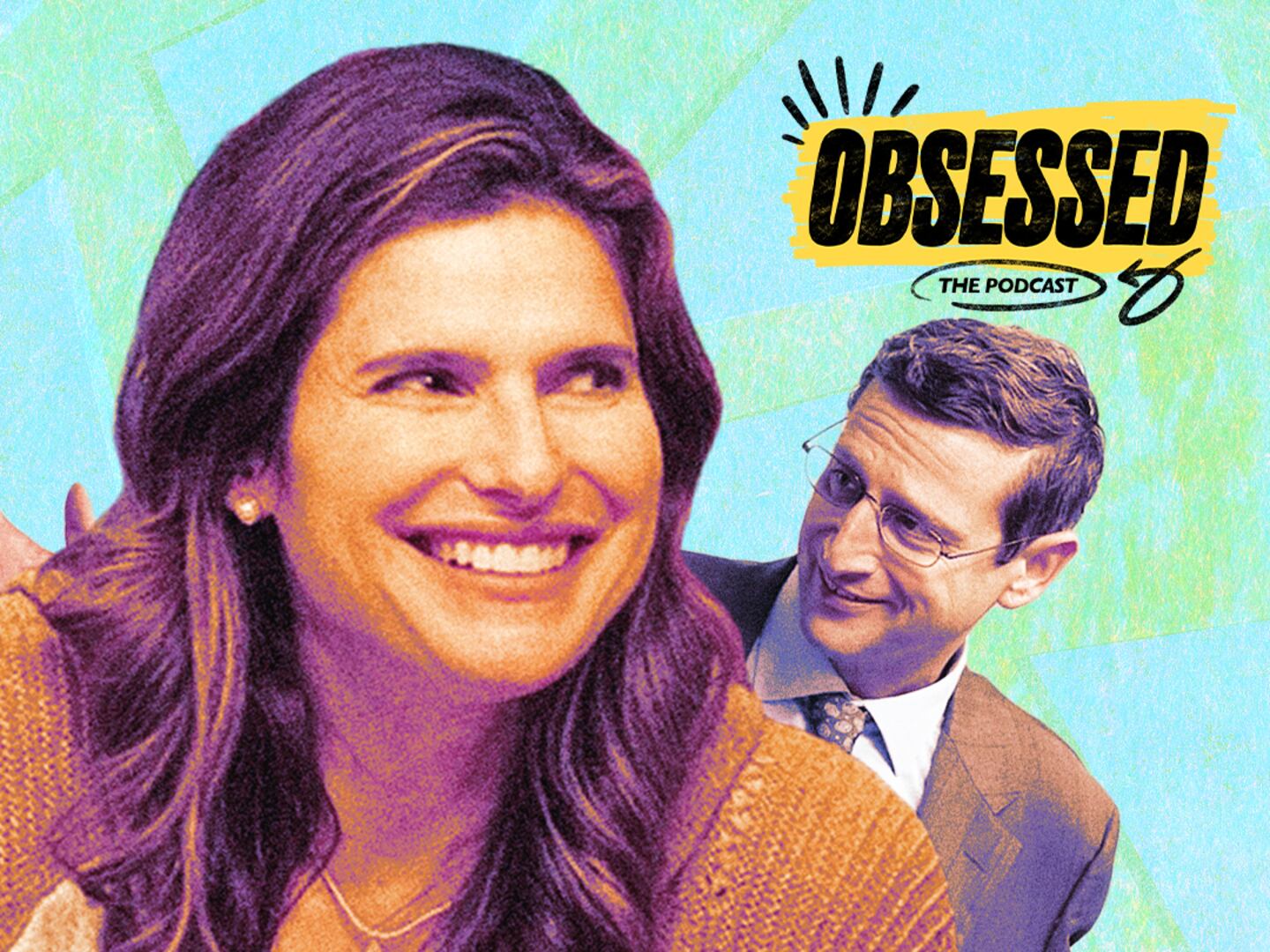VENICE, Italy—Richard Linklater has always been fascinated by language, particularly in the Before trilogy and, within that, particularly in Before Sunset, where both lovers are chatty but Ethan Hawke, as Jesse, dominates conversation, exploiting his facility for sweet-talk to seduce Céline (Julie Delpy). The subsequent films in the trilogy course-correct that imbalance, with Delpy having more input in the screenplay: Céline starts to meet Jesse’s dreamy romanticism with a frank, no-nonsense irony.
Thoughts of those films come to mind, at times, when watching Linklater’s latest, Hit Man, in which Glen Powell plays Gary Johnson, a cop who moonlights as a pretend hitman in order to arrest people seeking the services of a contract killer. All he needs to do is extract a clear demand for a killing and money for the service, and the arrest can be made. Gary, at the outset of the story, is a shy and somewhat bumbling professor of philosophy who works as an investigator in his spare time and who, when a colleague suddenly falls ill, is asked to step in at the last minute and encounter a man who is seeking the services of a professional killer.
Terrified by this prospect, he nevertheless finds over the course of this meeting—which is brilliantly played for laughs by Linklater and Powell, the co-writers of this film—that he is natural at the job because of his gift for rhetoric. Indeed, in a way that calls to mind Breaking Bad, this gentle, educated man soon finds that his alter ego for the purposes of the job, Ron, offers him an outlet for another side of his personality that had lain dormant—a more extroverted persona, assured and cool. And, also like in Breaking Bad, the secondary persona is in danger of swamping the primary: that is, Gary gets in too deep, blurring the line between his law-abiding self and his maverick, reckless identity.
This occurs when Gary meets, and immediately falls for, a young woman called Madison (Adria Arjona), who wishes to enlist Ron’s services to kill her ex-husband. Finding himself drawn to her, Gary finds a way—while being supervised by his colleagues, over a sound system, to talk her out of making an official request for a hit on her husband, thus sparing her prison. Still presenting himself as Ron—and this is where the film’s politics start to get somewhat gnarly—Gary starts to date Madison, using his gift for subterfuge to get with this suspect.

Clearly, this situation is deeply, deeply unethical, and there may be viewers—particularly those among us who believe that ACAB—who are turned off by Hit Man’s breezy immorality. How are we supposed to perceive Gary/Ron and his daredevil scheming, playing his clueless colleagues and love interest off in order to get what he wants? Hit Man clearly does not condone his behavior, but, equally, he is presented as a highly charismatic and charming central character, in what is—this is indisputable—a wickedly funny and entertaining crime caper.
I’m not asking for a clear condemnation of this character and his methods, as if cinema had a duty to always shoot down “problematic” characters; clearly, this is a film played for enjoyment, and a large part of it is fantasy. But some of Hit Man’s juice, its delight, may be compromised for some viewers by its queasy viewpoint, which puts a police officer front and center, and sees him gleefully entrapping people for what may only amount to thought crimes.
Leaving those qualms to one side, however, Hit Man clearly delivers the sort of smart, broadly funny comedy not seen on a big screen since 2016’s The Nice Guys: this is a deeply likable, beautifully paced narrative, a supremely elegant and slippery work that kind of pulls the viewer in, making them feel specially catered to. In large part, the success of the film is due to Glen Powell, who not only co-wrote this casually witty screenplay, but gleefully plays on his own screen persona. Powell is slick and handsome, possessing smooth all-American good looks and a kind of shit-eating self-confidence (which, in last year’s Top Gun sequel, was oily and noxious). Here, he has fun grounding his character in a kind of uncertainty, a lack of self-esteem, that will eventually be peeled back and resolved into a kind of uber-Powell who can summon his own inner cool while surprising us with real emotions.
Outlining the film’s sheer pleasure, which is surely heightened by the fact that in 2023 we so seldom get to experience this kind of assured, handsome, grown-up entertainment, might spoil the jokes, or the film’s plot, which reaches quite dizzying heights of double-crossing and triple-crossing. It’s reasonable to say, however, that Adria Arjona goes toe to toe with Powell, in a sort of tango of interplaying personas and subterfuge, the pair of them taking pleasure in working each other out. There is a crackling chemistry between the two, whose attraction is clearly based in part on their love of danger, and their mutually compromised relationship.
There is a purely enjoyable scene towards the end, which prompted gales of laughter and spontaneous applause in my screening, and which must have been a true nightmare to write, in which Gary and Madison communicate with each other via mobile phone, while lying brazenly for the benefit of people listening in. Here, the joy stems from the audience feeling let in on the joke, and seeing the mechanics of that lie play out with so much finesse.
The film ends with a postscript about the real Gary Johnson on whom the movie is based—an investigator who never got involved in anything as illegal as the film concocts for him. The real guy was the subject of a highly entertaining long read in Texas Monthly that is rather more nuanced and realistic in its appraisal of Johnson’s character; reading the piece may help some viewers offset the giddy delight they are sure to take in this delightful slice of copaganda.
Liked this review? Sign up to get our weekly See Skip newsletter every Tuesday and find out what new shows and movies are worth watching, and which aren’t.






